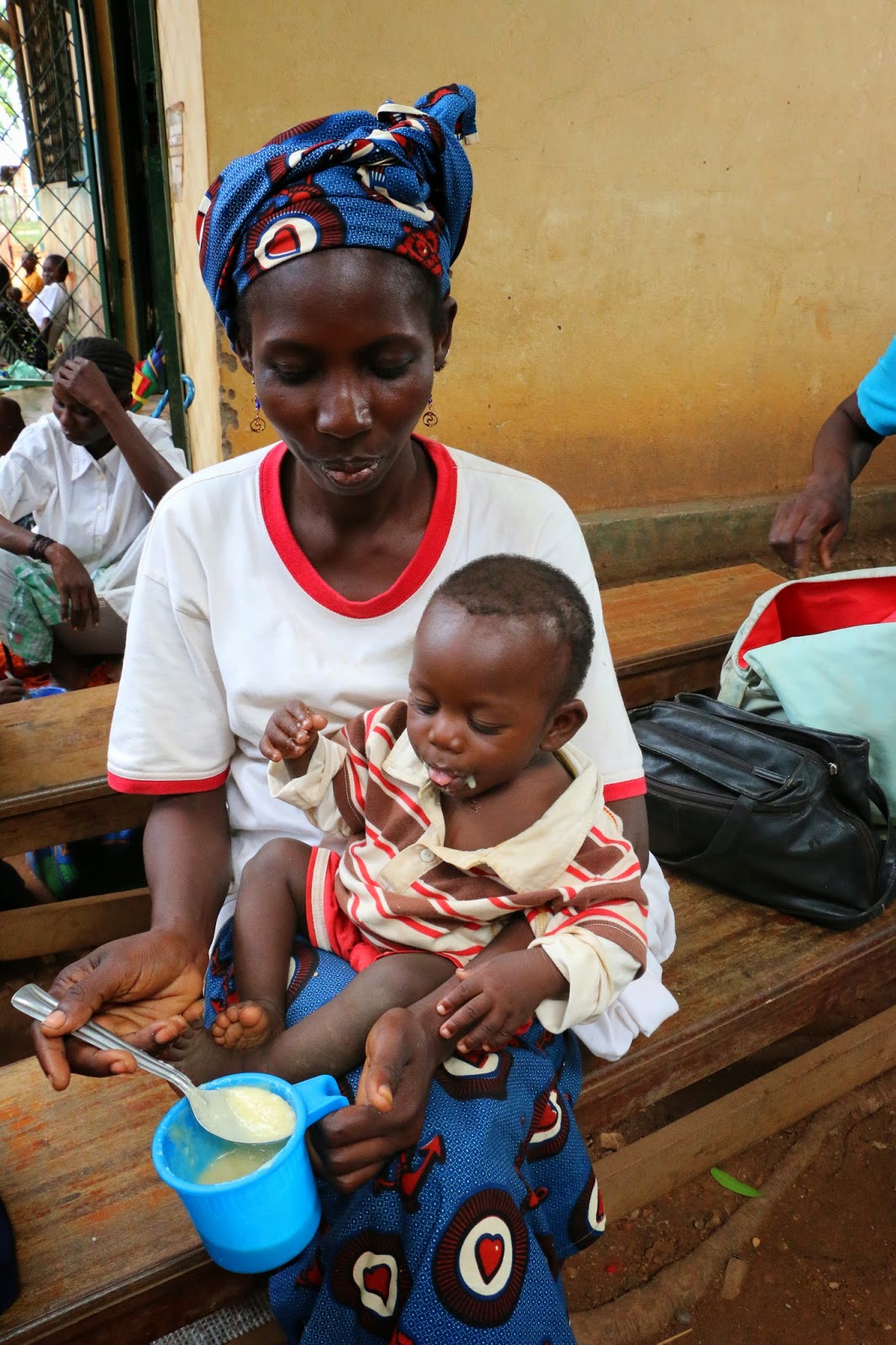Children Hit Hardest By Hunger Crisis In C.A.R.
Published on 30 April 2014
While the recent violence has wrecked countless lives in C.A.R., its effects have hit children the hardest. Forced to flee their homes and abandon school, they often find their parents now cannot feed them adequately. Children are more likely to die from malnutrition than from bullets in this crisis. WFP is working to address this threat in places like the Boy Rabe health centre in Bangui.
by Melissa Chemam
Sandrine and Brayane wait for food and treatment at the Boy Rabe health centre in Bangui.
(Copyright: WFP/Melissa Chemam)
BANGUI – Sandrine, a mother of two, has come to the Boy Rabe health centre in Bangui to seek treatment for her younger child, Brayane, who is malnourished. She queues patiently in a long line of mothers awaiting treatment and food rations for their children.
“I have no job, and my husband left months ago for Brazzaville, in Congo. But he cannot send us much money,” explains Sandrine.
“I have no more help - my parents died before the crisis and I live with my two children, sister and grand-mother in Boy Rabe. I used to harvest some manioc from her fields, but it is not safe anymore. We completely depend on the centre for food.”
The Boy Rabe centre in northwest Bangui -- is the only place Sandrine and other mothers can access food. It is run by the NGO Les Amis d’Afrique. WFP and its partners provide milk, food rations and two meals a week for families who use the centre. Children like Brayane, who suffer from moderate acute malnutrition, also receive specialised treatment from Action Contre La Faim.
Another mother waiting patiently with Sandrine is Viviane (see photo left) who is visiting the centre with her sick son John Peter. She explains that her husband was killed in the violence and that the family was forced to flee after their Bangui home was burnt and looted.
Food for family
“We had no choice but to leave,” she says. “Now we live with my late husband’s family. But none of us has any work”.
A former shopkeeper, Viviane intends to work as soon as possible. In the meantime she visits the centre daily with John Peter who receives milk in the morning, as well as cereals and sardines. Along with other mothers at the centre, she also receives rice, maize and beans to take home to the rest of her family.
Even before the crisis began, malnutrition rates in C.A.R. were among the worst in the world. Almost half of children under five suffered from stunted growth (a condition caused by malnutrition), and 25 percent were underweight. The conflict has only made matters worse, with C.A.R.’s only pediatric hospital registering a 62 percent increase in the number of children hospitalized with severe acute malnutrition compared to the previous year.
Since January, WFP has provided supplemental nutrition support to approximately 25,000 malnourished children each month, offering some hope to mothers like Viviane:
“Now, we are only praying for peace,” she says. “We need security forces – we will get the country back on track.”

































